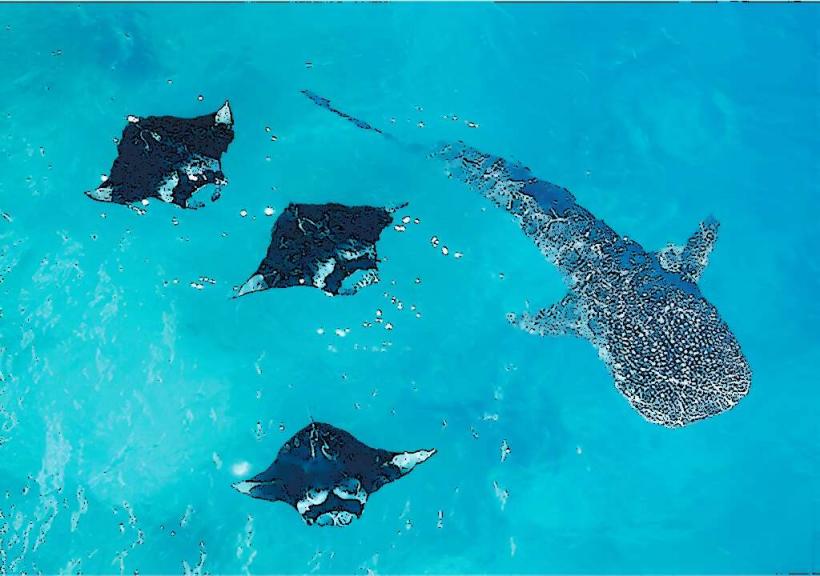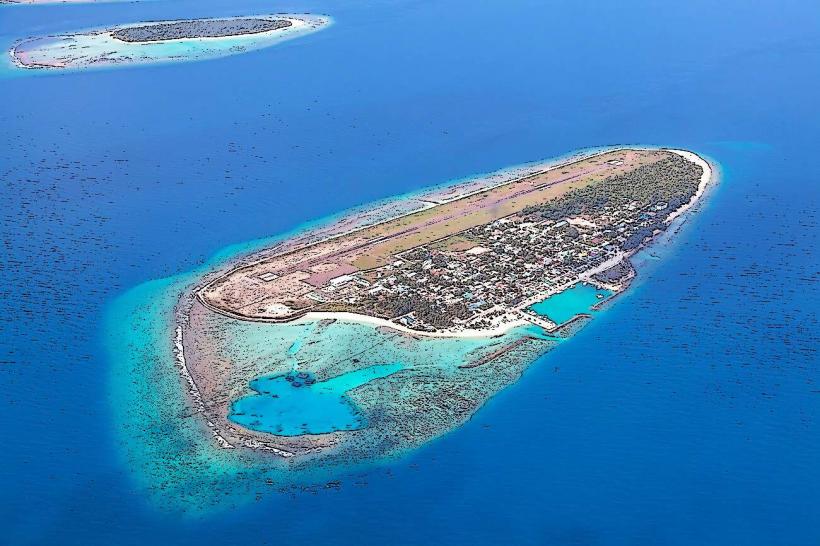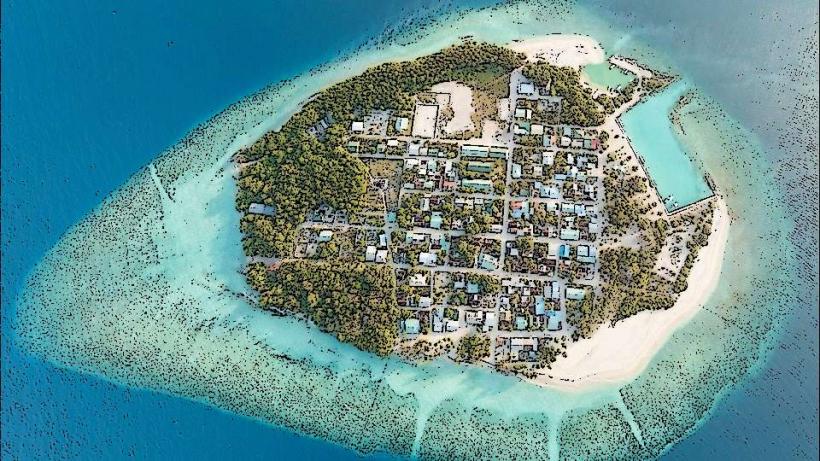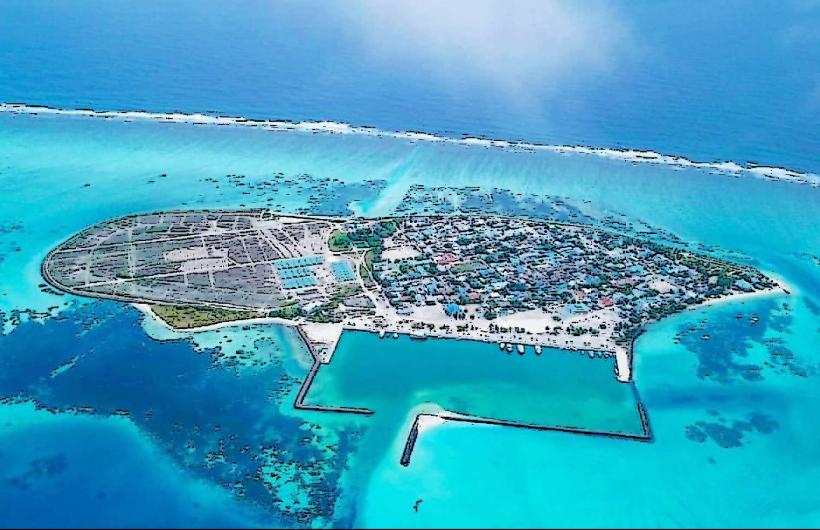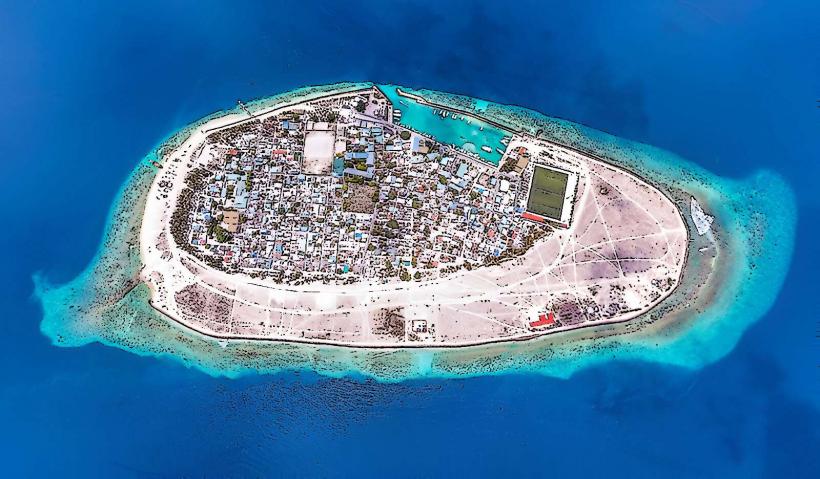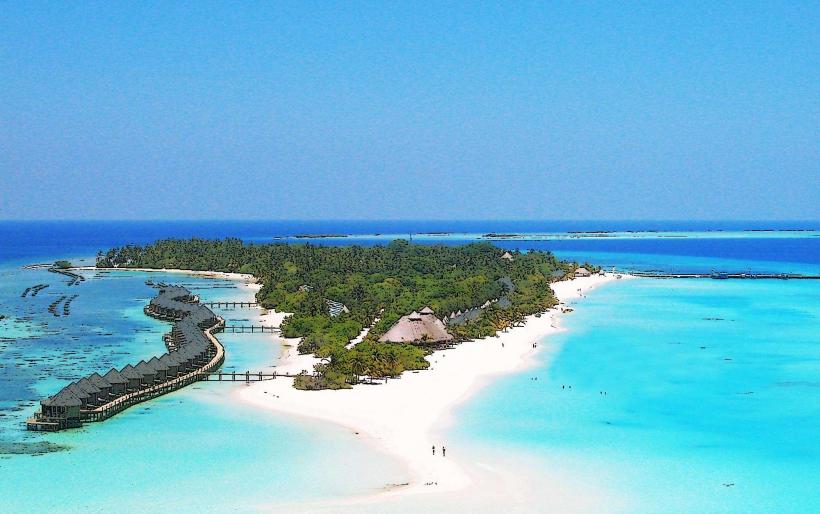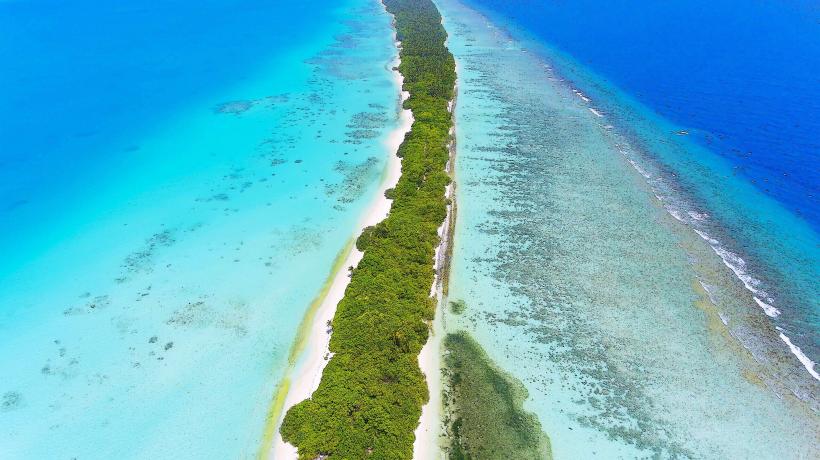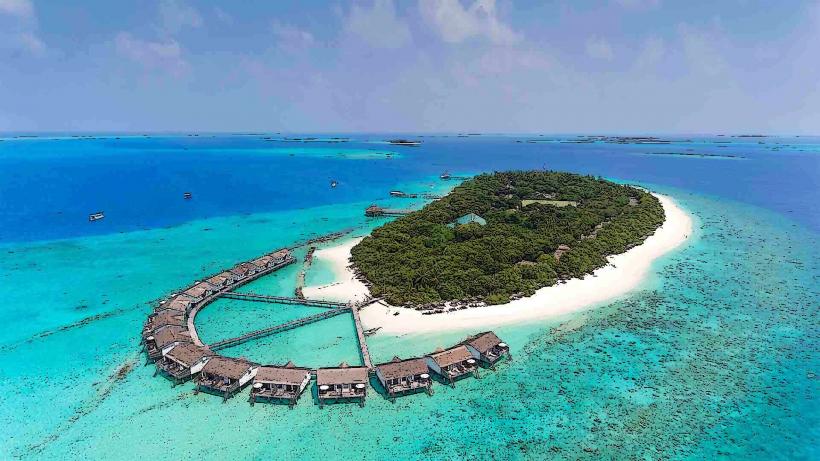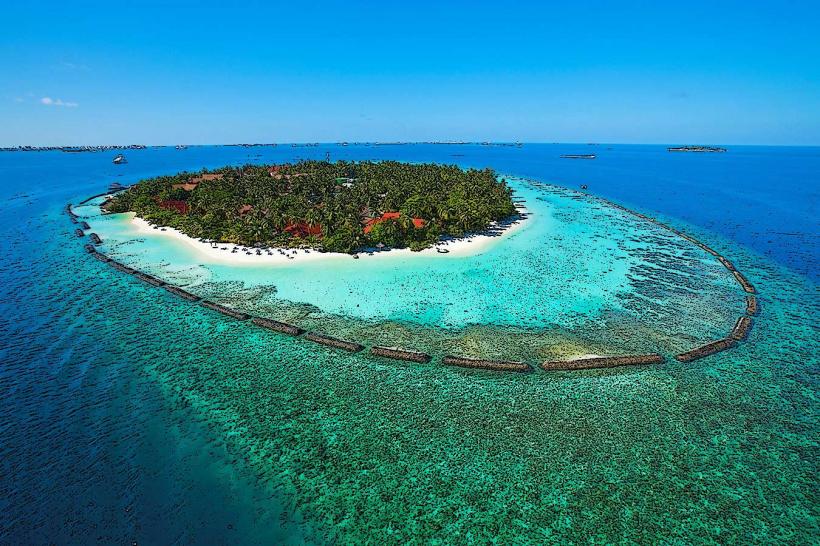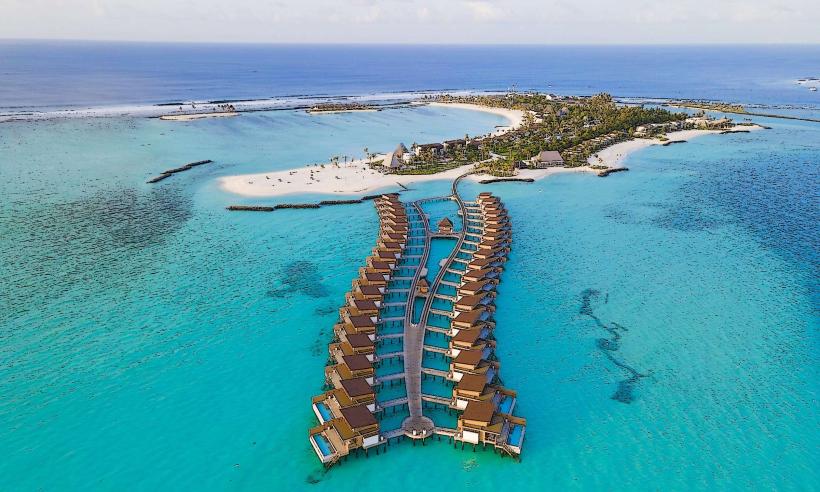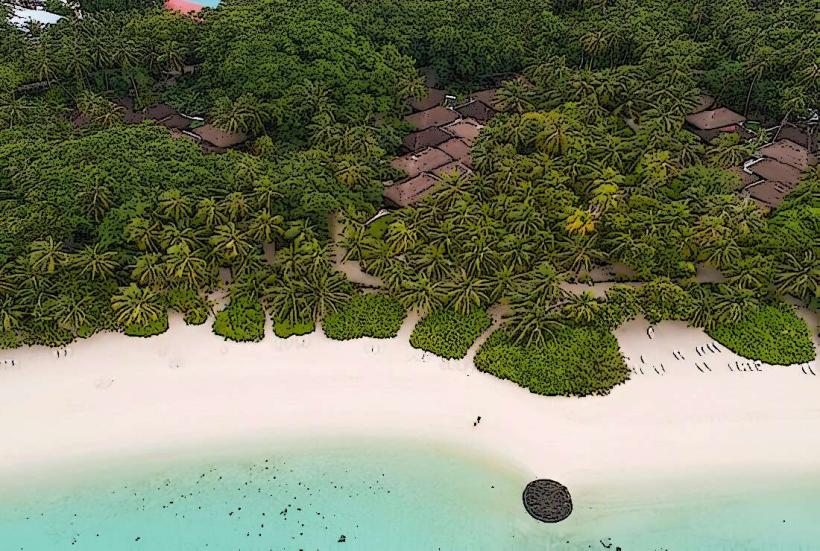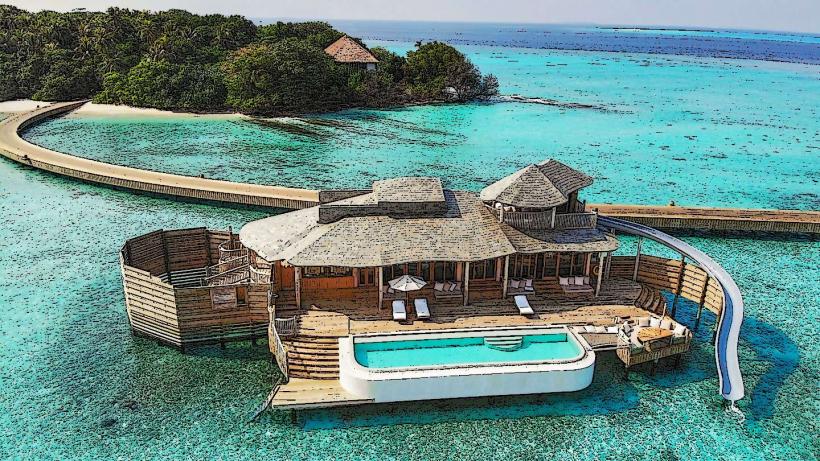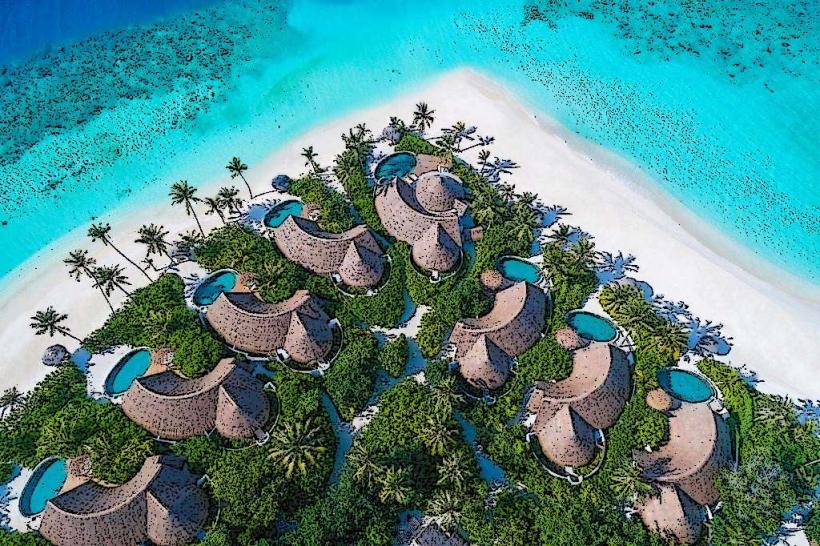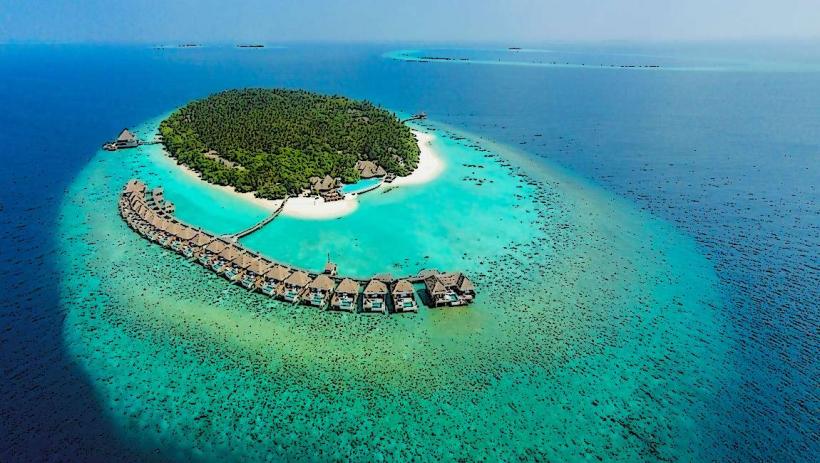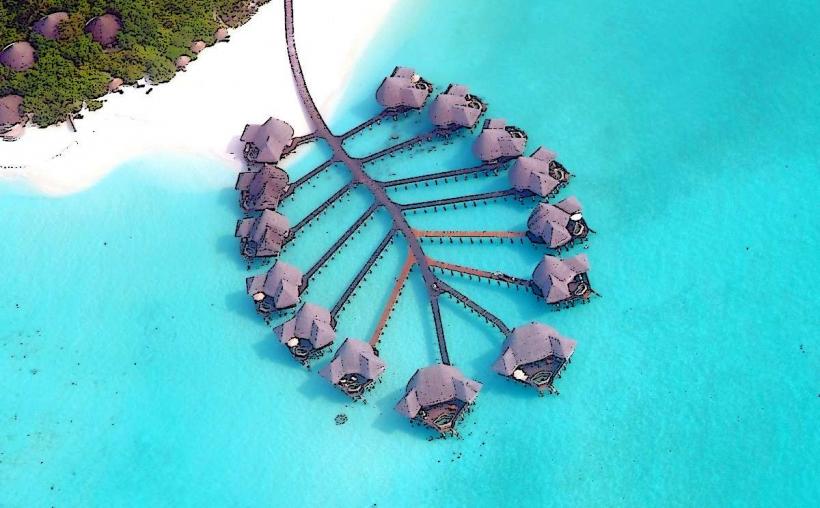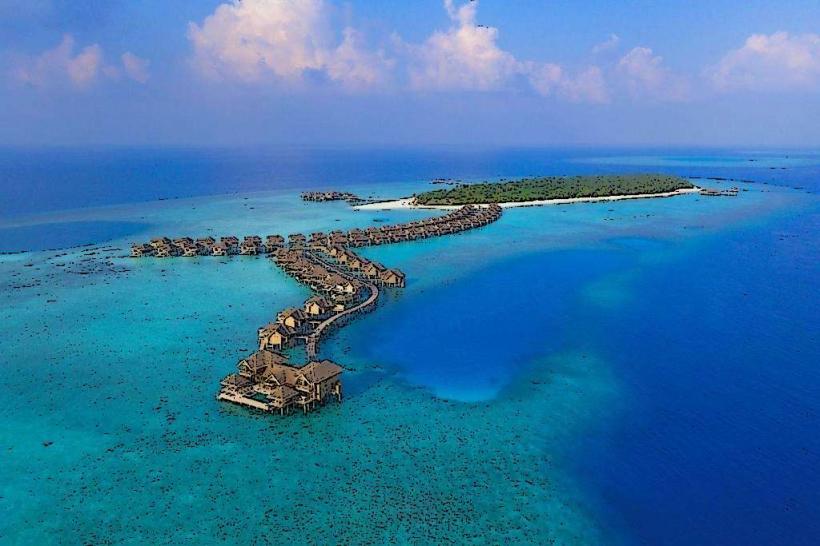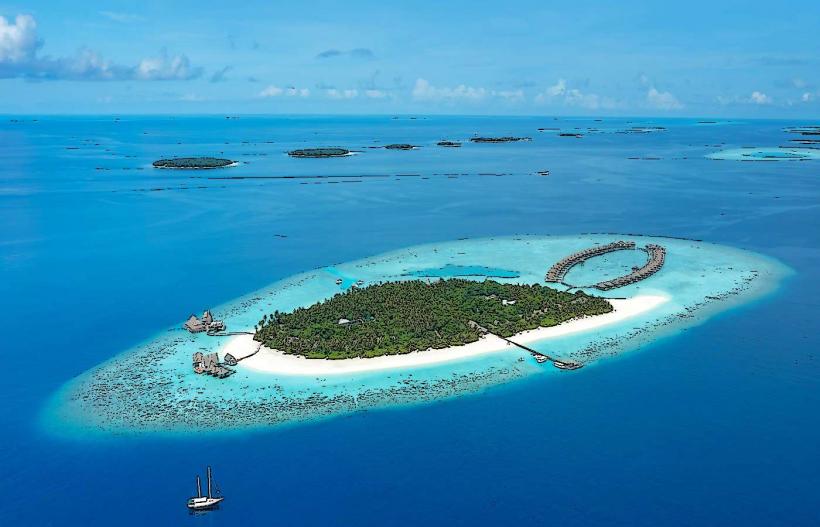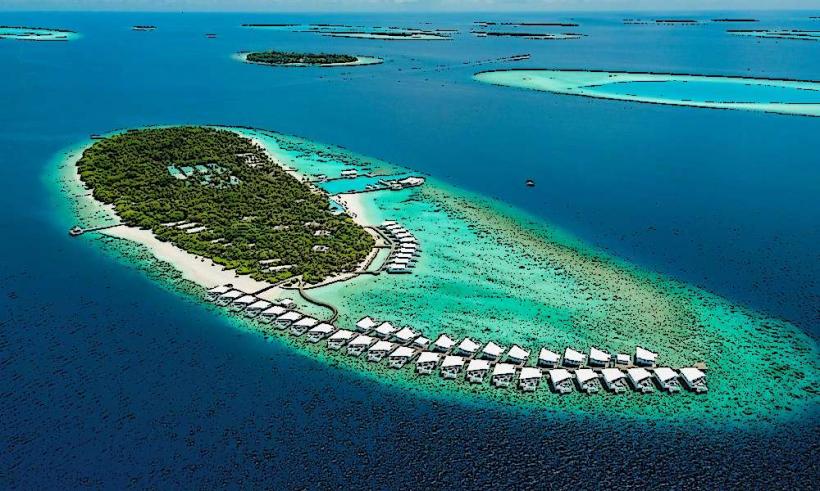Information
Landmark: Baa Atoll Biosphere ReserveCity: Baa Atoll
Country: Maldives
Continent: Asia
The Baa Atoll Biosphere Reserve, located in the Maldives, is a significant ecological area recognized by UNESCO for its exceptional biodiversity, natural beauty, and sustainable management practices. It was designated as a UNESCO Biosphere Reserve in 2011, reflecting the area's importance in global conservation efforts.
Geography and Location
Baa Atoll is situated in the central part of the Maldives archipelago, which consists of over 1,000 coral islands spread across 26 atolls in the Indian Ocean. The atoll is made up of around 13 inhabited islands, 3 uninhabited islands, and 6 resorts. It is surrounded by pristine coral reefs and offers diverse marine environments, from shallow lagoons to deep ocean waters.
Biodiversity
Baa Atoll is home to a rich variety of marine life and terrestrial ecosystems. Its waters provide habitat for numerous species of fish, marine mammals, and sea turtles. Some key features of the atoll's biodiversity include:
- Coral Reefs: Baa Atoll contains some of the most diverse and healthy coral reefs in the Maldives. These reefs are home to vibrant fish species and offer critical feeding and breeding grounds for marine life.
- Marine Species: The atoll is particularly known for its marine biodiversity, including populations of manta rays and whale sharks. These species are migratory, and the atoll provides an essential stopover for their feeding and breeding.
- Mangroves and Seagrasses: These coastal ecosystems are crucial for maintaining water quality and providing nurseries for young fish. The mangroves in Baa Atoll also play a role in protecting the coastline from erosion.
- Birdlife: Baa Atoll hosts several bird species, including migratory birds that use the atoll as a resting stop during seasonal migrations.
Environmental Conservation and Sustainable Practices
The designation of Baa Atoll as a Biosphere Reserve helps promote the conservation of its unique ecosystems while balancing human activity. Local communities, the government, and conservation organizations are actively involved in maintaining the atoll's ecological integrity through sustainable practices. These include:
- Marine Conservation: Efforts are made to protect critical marine species like manta rays and whale sharks. Sustainable fishing practices are promoted, and efforts are taken to reduce overfishing and the destruction of coral reefs.
- Eco-tourism: Several resorts within the atoll focus on responsible tourism, which emphasizes environmental education and sustainability. Tourists are encouraged to engage in conservation efforts and respect the delicate ecosystems.
- Research and Education: The reserve serves as a hub for scientific research. Many environmental organizations and universities use the atoll as a research station to study marine biology, climate change, and conservation techniques.
- Local Involvement: Local communities in Baa Atoll are integral to the Biosphere Reserve's success. There are initiatives that allow local populations to engage in sustainable tourism, fishing practices, and conservation efforts. Education and outreach programs also raise awareness about the importance of protecting the environment.
Key Attractions
- Hanifaru Bay: This UNESCO World Heritage site within Baa Atoll is one of the most famous marine spots, renowned for its seasonal aggregation of manta rays and whale sharks. From May to November, the bay becomes a feeding ground for these majestic creatures, attracting tourists and researchers alike.
- Diving and Snorkeling: The clear waters surrounding Baa Atoll offer excellent opportunities for diving and snorkeling, with access to vibrant coral reefs and a diverse range of marine species.
- Eco-resorts: Several eco-friendly resorts in Baa Atoll are built to blend with the natural environment and adhere to sustainable practices, offering luxury accommodations while maintaining ecological sensitivity.
Challenges and Future Outlook
Despite the significant conservation efforts in place, Baa Atoll, like many other parts of the Maldives, faces ongoing challenges from climate change, particularly rising sea levels and ocean acidification, which threaten coral reefs and marine life. Continued research and collaboration are essential to mitigating these risks and ensuring the long-term survival of the atoll’s unique ecosystems.
In summary, the Baa Atoll Biosphere Reserve is a globally important site for biodiversity, conservation, and sustainable tourism. Its diverse ecosystems, including coral reefs, mangroves, and marine life, make it a vital area for both local communities and global conservation efforts.

